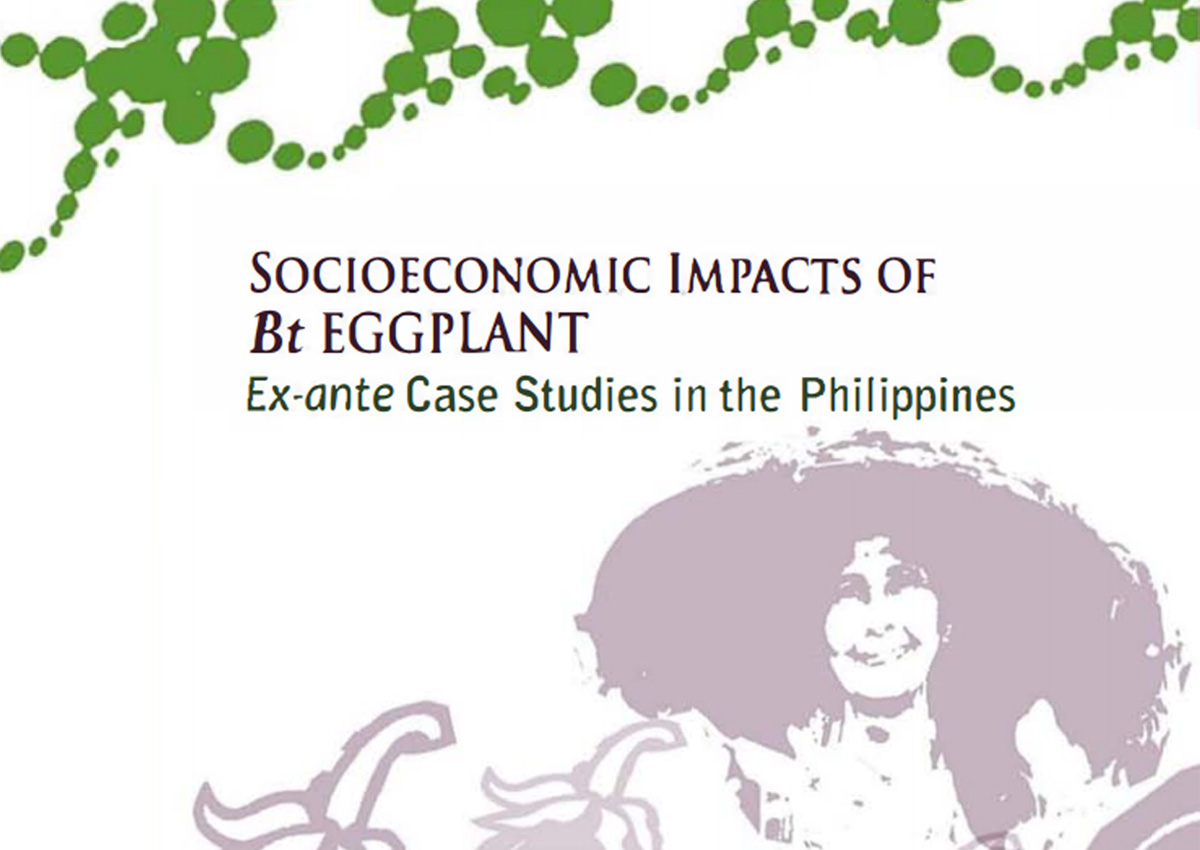Ex-ante Case Studies Reveal Benefits of Bt Eggplant in the Philippines
| |

Did you know that the Philippines is the 7th top eggplant producer in the world? Eggplant is an economically important vegetable in the Philippines, where its production accounts for nearly one-third of the total volume of the top vegetables. Eggplant farming provides many small-scale farmers their major source of employment and livelihood.
However, eggplant production in the country suffers from significant yield losses due to pests and diseases, mainly the fruit and shoot borer (FSB). This pest is the most commonly reported insect pest, against which farmers resort to frequent and heavy spraying of insecticides. Such practice can lead to insecticide residues contaminating agricultural soils and water, as well as cause occupational health concerns to farming households.
To address this production constraint, a research team at the Institute of Plant Breeding at the University of the Philippines Los Baños (IPB-UPLB) developed FSB-resistant eggplant (also called Bt eggplant). Promising varieties of this Bt eggplant are currently under advanced stage of evaluation for horticultural performance and biosafety.
Between 2006 and 2013, ISAAA commissioned a number of researchers to conduct baseline studies on conventional eggplant production system and ex-ante impact assessment studies of Bt eggplant in the Philippines. These studies assessed the Philippine eggplant industry at the national level and in selected major production areas. Results of these studies are compiled in the book Socioeconomic Impacts of Bt Eggplant: Ex-ante Case Studies in the Philippines.
The book, edited by Roberta V. Gerpacio and Albert P. Aquino, has 10 chapters detailing studies on the eggplant industry in the Philippines; insecticide residues in soil, water, and eggplant fruits; eggplant supply chains in selected areas in the country; socioeconomic, health, and environmental impacts of Bt eggplant; and market prospects of Bt eggplant.
Important results of the studies reveal that a Bt eggplant farm could gain higher net farm income than a conventional one because of increased marketable yield and reduced insecticide and labor costs. If Bt eggplant is grown on a commercial scale in the country, it is expected to boost marketable yield by 192 percent and reduce pesticide application per hectare by 48 percent.
To learn more about these studies, download and read the book Socioeconomic Impacts of Bt Eggplant: Ex-ante Case Studies in the Philippines from the ISAAA website.
| Newer Post | Archive | Older Post |
Science Speaks is ISAAA Inc.'s official blog. Weekly blog articles, authored by ISAAA writers, partners, and invited contributors, aim to help share, disseminate, and promote scientific knowledge and its vital role in achieving global agricultural sustainability and development. Your support to Science Speaks will help us achieve this goal. You can help us by donating as little as $10.

